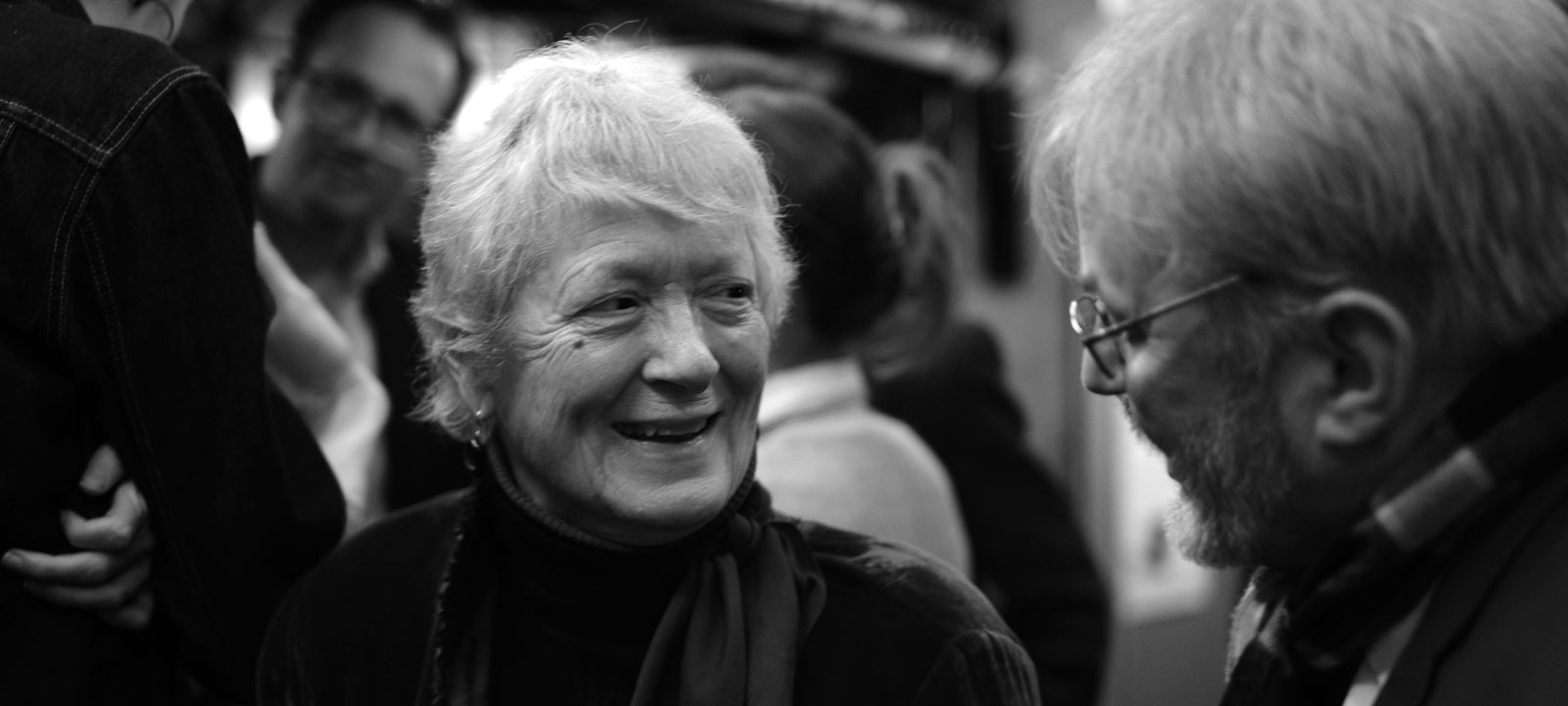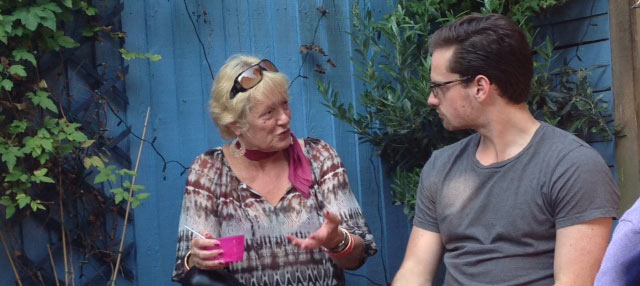Career at a Glance
Penelope Corfield served as President of the British Society for Eighteenth-Century Studies (2008-10), for which see www.bsecs.org.uk. She was then elected as Vice-President of the International Society of the same name (2011-19), before becoming its President (see section 2.1).
Since 2015, Penelope has also been an elected Member of the Academia Europaea/ Academy of Europe. She is a fellow of the Royal Historical Society, and one of the founder members of the International Big History Association.
Her education was provided within the British state system, attending in the 1950s a secondary school in Chislehurst, Kent; then Chislehurst & Sidcup County Grammar School for Girls; now Chislehurst School for Girls. After that, she studied for a History degree, getting a First at St Hilda’s College, Oxford; and she completed her doctorate at the London School of Economics.
Penelope then pursued her academic career in London University, firstly at Bedford College and then at Royal Holloway (with which Bedford merged in the mid-1980s). She is now an Emeritus Professor, attached to the History Department of Royal Holloway. She is also a Visiting Fellow at Newcastle University’s Humanities Research Institute (2016-19), in connection with her role on the steering committee for the AHRC-funded research project ‘Eighteenth-Century Political Participation and Electoral Culture’ (directed by Prof. Matthew Grenby). Her research interests in this developing field are conveyed in her Lecture on ‘Proto-Democracy’: see section 2.2 Lectures – Lecture/3.
At various times, Penelope has held Visiting Professorships in Australia, Hungary and Japan, as well as Visiting Fellowships at the Institute for Advanced Study, Princeton, and at the University of Oxford (Nuffield College; All Souls College). In addition, she has taught courses in British history for the Yale-in-London programme; and, throughout her career, she has given many lectures to history societies, student groups, and academic gatherings around the world. One stimulating visit among many was her trip to New Delhi in February 2018, to attend the second annual Conference of the newly-launched India-International Society for Eighteenth-Century Studies (I-ISECS): the excitement of the gathering was joyous.
During her academic career, Penelope decided to focus especially upon teaching and writing, and therefore not to seek posts in academic administration. But she has carried out her fair share of administrative ‘chores’, including service on the History sub-Panel for the government-decreed 2008 Research Assessment Exercise (then known as the RAE, now updated in nomenclature to the REF). Her critical ambivalence about this process is recorded in her Meditations by a Reluctant Auditocrat, published in 2009 – see the following essay 2.5.1.
As a teacher, Penelope deeply enjoyed taking classes of both undergraduate (BA) and postgraduate students at MA and PhD level. She believes in helping all students to gain transferable skills (who doesn’t?) but she is strongly opposed to the current trend in education-politics, which elevates ‘Skills’ above ‘Knowledge’. That approach is not only wrong in principle but it also leads to an inadequate learning of skills, thus defeating the very purpose that elevating the ‘Skills’ mantra is supposed to achieve. On this question, see the following essay 2.5.2.
Looking back, Penelope is especially proud of her record in establishing and teaching the renowned Core Course of Royal Holloway’s Modern History MA (1992-2008). The Friday sessions of this class were special educational experiences for us all. Another source of pride is having supervised since the 1980s a galaxy of 30+ PhD students, including many recruited from overseas. Their topics ranged from seventeenth-century piracy to twentieth-century British social, gender and political history, via many on eighteenth- and nineteenth-century Britain. All have completed; and most have gone on to publish. 20+ now hold tenure-track University or research posts, either in Britain or overseas (including Canada, Japan, Spain, Taiwan). And others use their skills in enterprising roles such as TV research, charitable administration, freelance writing, and historical pirate-hunting.
Penelope is currently writing a research handbook, based upon what she has learned through her own experiences and through teaching others. The best compliment that she ever received as a teacher came from a first-year student in c.2003: ‘At the time, I did not understand what you were talking about – but afterwards, it all made sense.’
*The following essays and BLOGs offer PJC’s critique of the currently overly-stringent and intellectually crushing audit culture in Higher Education, drawing upon both PJC’s personal experience and her observation of the University world over any decades.
2.5.1 Meditations by a Disaffected Auditocrat (2009), Pdf15
A personal statement from PJC on being an assessor for the 2008 Research Assessment Exercise. Whilst reporting that the task was conducted fairly within its rules, she concludes that the framework system was unfair – allowing Universities to game the system by entering some colleagues for assessment and concealing others, and forcing all academic subjects into the same assessment boxes, which had genuine meaning for some subjects but not for others. The outcome was a massive waste of time, administrative effort, and money. Creativity was indeed stifled. Cynicism was enhanced. The outcomes provided complex data for the Universities to massage in their own best interests, whilst also providing politicians with a chance to snipe, and giving University administrators control over the academics. PJC was one of the unelected ‘auditocrats’ (to coin a new term) and concluded: ‘I was one and I don’t regret enjoying it. But I was a cog in the wrong machine and I do regret that.’
2.5.2 What Has Gone Wrong with the Audit Culture? (BLOG/ 9, June 2011)
2.5.4 The Bedford/Royal Holloway History Tradition(s) (2010) – Pdf
This short retrospective assessment of History at Bedford College in the 1970s, up to and including the College’s merger with Royal Holloway in the mid-1980s, evokes a now-vanished era. Historically, it fell within a time of expansion when Universities were starting to recruit a much broader range of students but it notably predates the later ‘massification’ of Higher Education (both for good and for ill) and the accompanying attempts at standardisation and bureaucratisation.
PJC at 15th International Conference on the Enlightenment, Edinburgh, July 2019. Photo (c) Christoph Heyl.


